Product Recall Advisories
Consumer Product Safety Commission (CPSC) - Recalls
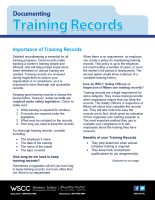
Detailed recordkeeping is essential for all training programs. Good records make tracking a worker’s training simple and efficient, and will help prompt supervisors when refreshers or annual training are needed. Training records are reviewed during… more
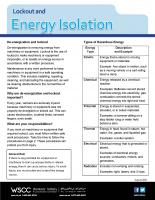
De-energization is removing energy from machinery or equipment. Lockout is the use of lock(s) to make machinery or equipment inoperable, or to isolate an energy source in accordance with a written procedure.
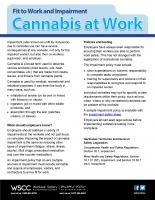
Employers have always been responsible for ensuring their workers are able to perform work safely. This has not changed with the legalization of recreational cannabis. Impairment (also known as unfit for duty/work) due to cannabis use can have… more
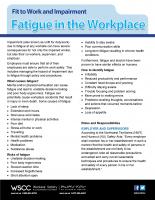
Mental and/or physical exhaustion can cause fatigue and lead to unstable decision-making and poor body ergonomics. Impairment (also known as unfit for duty/work) due to fatigue at any worksite can have severe consequences for not only the… more
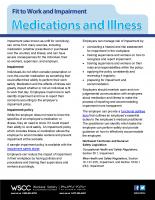
Individuals do not often consider prescription or over-the-counter medication as something that could affect their ability to perform their work safely. Medication and the effects of illness can greatly impact whether or not an individual is fit to… more
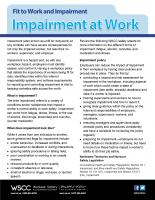
The term impairment refers to a variety of conditions and/or substances that impact a worker’s normal ability to work safely. Impairment can come from fatigue, stress, illness, or the use of alcohol, illicit drugs, prescribed and over-the-counter… more
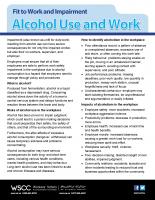
Impairment (also known as unfit for duty/work) resulting from alcohol use can have severe consequences for not only the impaired worker, but also their co-workers, supervisor, and employer. Employers must ensure that all of their employees are able… more
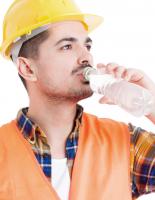
The return of the midnight sun means that many of us will take advantage of the great outdoors between now and the end of August. Whether you work outdoors or simply enjoy the sun for recreational purposes, you need to consider your health and… more

Synthetic web slings are lightweight and flexible flat rigging usually made of nylon or polyester. They are affordable, non-sparking, and offer good protection from damaging machined parts. It is very important that synthetic web slings are… more

Sprain and strain injuries are the leading cause of time loss injuries for workers across the Northwest Territories and Nunavut.
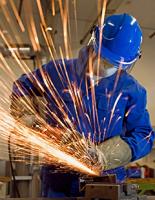
Grinders, or tools that use abrasive/grinding wheels and discs, are commonly found on many worksites and in our homes. To use them safely, it is important to note that rotating grinding wheels and cutting discs can break, causing the potential for… more
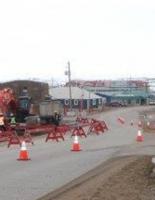
Workers face an increased risk when they work on roadways. Employers must develop and implement a written Traffic Control Plan that protects workers from traffic hazards, while upholding the applicable standards of the Northwest Territories’ Public… more
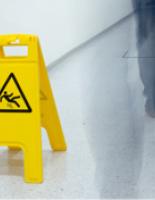
Slips, trips, and falls remain a major cause of injury in the workplace. Risk is higher from autumn to spring, with most incidents occurring in winter. During winter months, WSCC manages an average of one claim per day. At least one… more
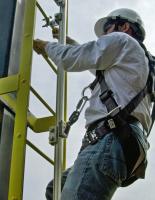
Safe Ladder Set-up and Use Select the right ladder for the job. Inspect the ladder before use; look for broken rungs and cracks. Use a ladder best suited for the landscape, like those with non-slip feet or spikes. Setup ladders away… more
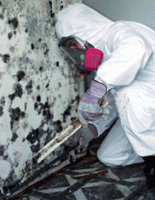
Employers and workers must comply with the Safety Acts and applicable regulations when removing mould-contaminated materials from the workplace.
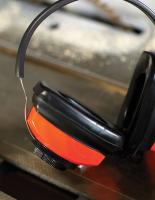
Hearing loss can result from exposure to sound levels at or above 85 decibels (dBA) for extended periods of time.

Safe Scaffolding Set-up: Train all workers on safe scaffold installation. Use proper fall protection. Carefully follow manufacturer’s instructions for safe set-up.
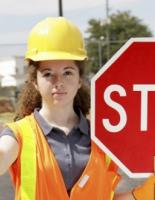
Traffic Control Persons (TCPs), or Designated Signallers, give clear instructions to anyone (motorist, cyclists, and pedestrians) moving through a work zone.
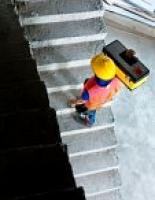
Workers face increased risks when working alone. The severity of the risks depends on location; type of work; public interaction; and consequences of potential emergencies, accidents or injuries.
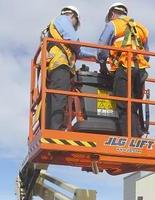
Employers who use elevated work platforms, often attached to self-propelled ‘zoom-boom’ type mobile equipment, must make sure these platforms meet the safety standard for this type of equipment. Platforms that do not meet this … more
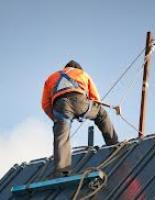
Every year in the Northwest Territories and Nunavut, workers suffer serious injuries because of falls from heights. A serious or fatal injury could occur if a worker falls from a height of 3 metres or more. Falls are a particularly serious problem… more